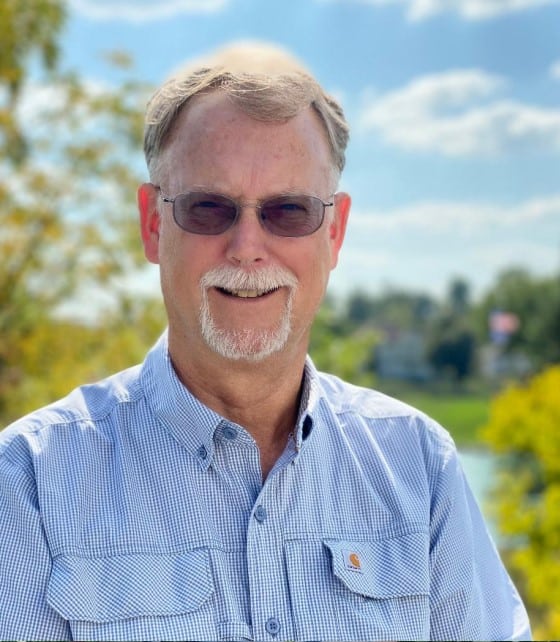Born and raised in southern Wisconsin, John Hornbostel
has had a life-long appreciation for the farms that were
a ubiquitous part of the state’s landscape. His interest
in farming took an international path while he was a
foreign exchange student, living for a year on a dairy
operation in southern Victoria, Australia.
A graduate of the University of Wisconsin, majoring in
agricultural economics and journalism. John worked
at a John Deere dealership, as well as a farm hand on a
dairy farm near Madison during his college summers.
After completing his MBA in international business, his
interests and career took him on a 20-plus-year journey
in global manufacturing and business development
including a four-year assignment in Japan, where he
traveled extensively to metropolitan and rural regions of
southeast Asia.
About 10 years ago, John partnered with a friend in
Indiana to develop a free-range, organic/non-GMO
egg company. His responsibilities included running
organic feed mill and grain elevator facilities, shell egg
processing, and packing operations and managing
live-team operations for free-range farms throughout
the Midwest. His role also included participation as
the company representative in a variety of industry
organizations including the Organic Trade Association.
More recently, John took the lead in helping the
company develop and launch a regenerative
agriculture program with a select group of
contract egg growers. Research for this project
including attending a Soil Health Academy
school, where he was introduced to the team at
Understanding Ag, LLC.
In addition to my career as a consultant,
my interest in the principles of regenerative
agriculture extend to my own Christmas tree
farm in Michigan. My wife and I are developing
this property using regenerative agriculture
practices, with a specific goal of minimizing the
use of synthetics that are so prevalent in the
Christmas tree industry today.
My appreciation for the “challenge of change”
in farming comes from working with farmers
who made decisions to move from conventional
to non-GMO, to make the transition to organic,
and to invest in farms that support free range-
pastures for poultry. These are not easy
decisions to make, especially if your neighbors
remain skeptical of your efforts.
I’ve been fortunate to have had the opportunity
to visit farms in various stages of transition.
Seeing firsthand how the soil, livestock and
crops respond to regenerative agriculture
practices is incredible. I am also excited about
how these efforts translate to improvements in
the nutritional value of the food we eat. Helping
with this transformation within our food chain
is what I look forward to in every conversation
with farmers, as well as end consumers.
John Hornbostel

